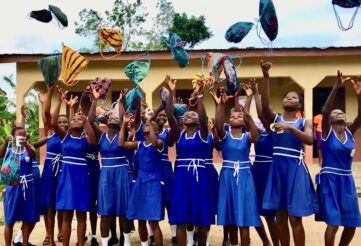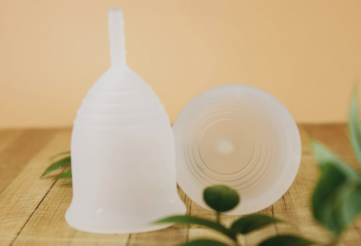DfG Ecuador: Empowering Indigenous Women Through Menstrual Health
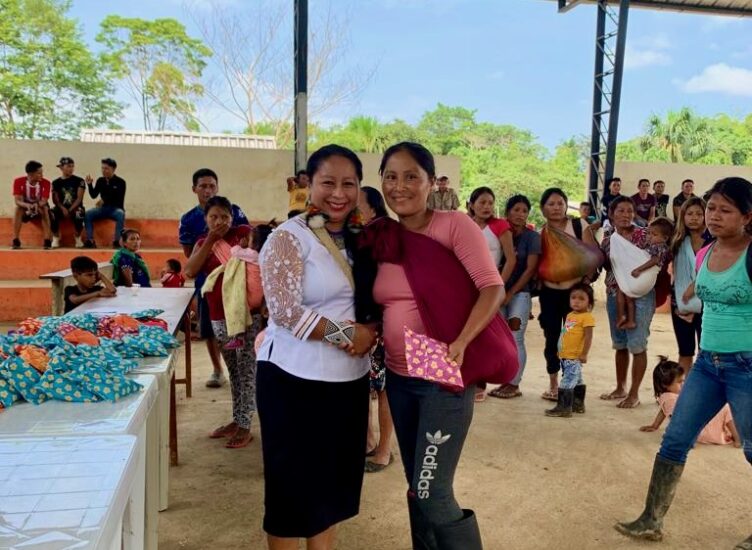
In Ecuador’s remote, indigenous communities, there are limited educational, professional and social opportunities for girls and women. They also lack access to safe menstrual products and often are not taught about sexual and reproductive health, resulting in some having children at a young age. Due to this gap in education and resource access, many use old clothing items or natural materials – like wool or leaves – to manage their menstruation.
In May 2023, Andrea Espinoza, leader of the Days for Girls Ecuador Enterprise (DfGE), began working on outreach efforts to some of the most remote indigenous communities across the province of Pastaza, Ecuador. Working with Lineth Calapucha, the Vice-Prefect of Pastaza, DfGE was granted the opportunity to distribute DfG Kits and provide menstrual health (MH) education to these communities. For a majority of these indigenous women, it was their first time engaging in MH education.
“When delivering the Kits to these communities, we contribute a lot to women and their families,” said Andrea. “In these places there are no stores, no money, and few job opportunities.”
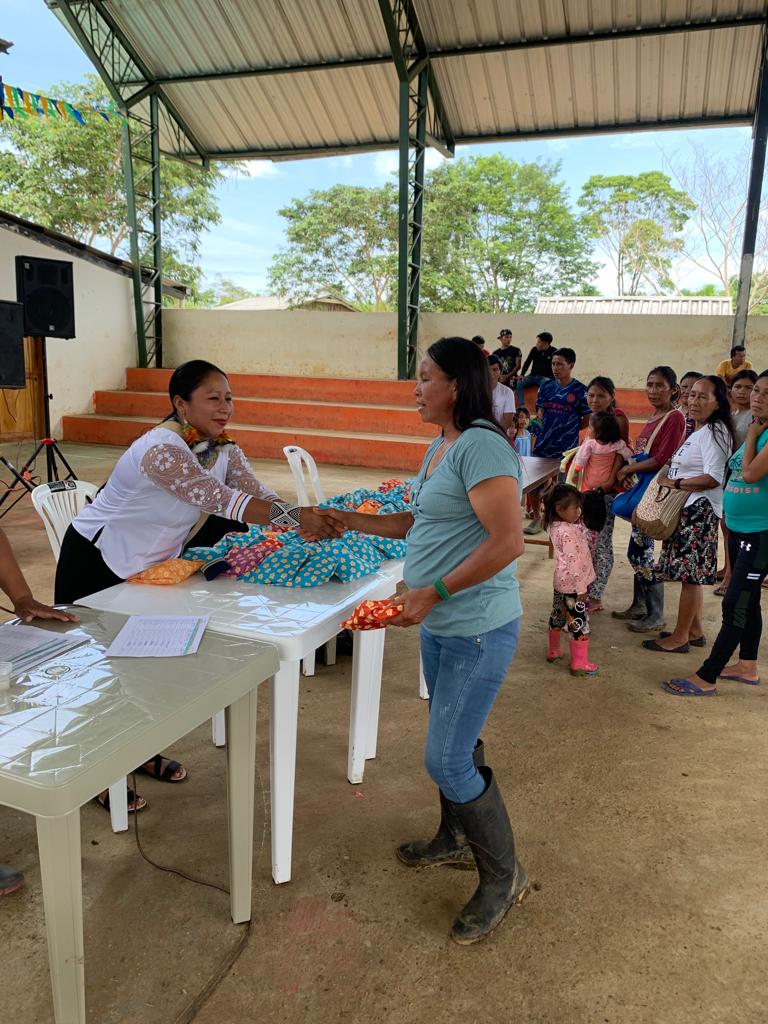 The distributions took place in the remote communities of Curaray, Canelos and Conambo. While visiting any of these communities is a challenging task, Curaray, a village along the Curaray River in the Amazon Basin, is particularly resistant to outsiders and difficult to reach. The indigenous groups of Curaray voluntarily isolate themselves from the rest of society and are historically violent toward those who try to enter their village without permission from tribal leaders.
The distributions took place in the remote communities of Curaray, Canelos and Conambo. While visiting any of these communities is a challenging task, Curaray, a village along the Curaray River in the Amazon Basin, is particularly resistant to outsiders and difficult to reach. The indigenous groups of Curaray voluntarily isolate themselves from the rest of society and are historically violent toward those who try to enter their village without permission from tribal leaders.
Though it initially seemed improbable, in May, Andrea and the Vice-Prefect contacted the leadership of Curaray and asked if they would be willing to receive DfG Kits for the women in their village. Remarkably, they accepted the invitation, allowing DfGE the incredible opportunity to visit and teach women and girls in Curaray about MH.
Curaray
In September, Andrea and the DfGE team made the long journey to Curaray – one hour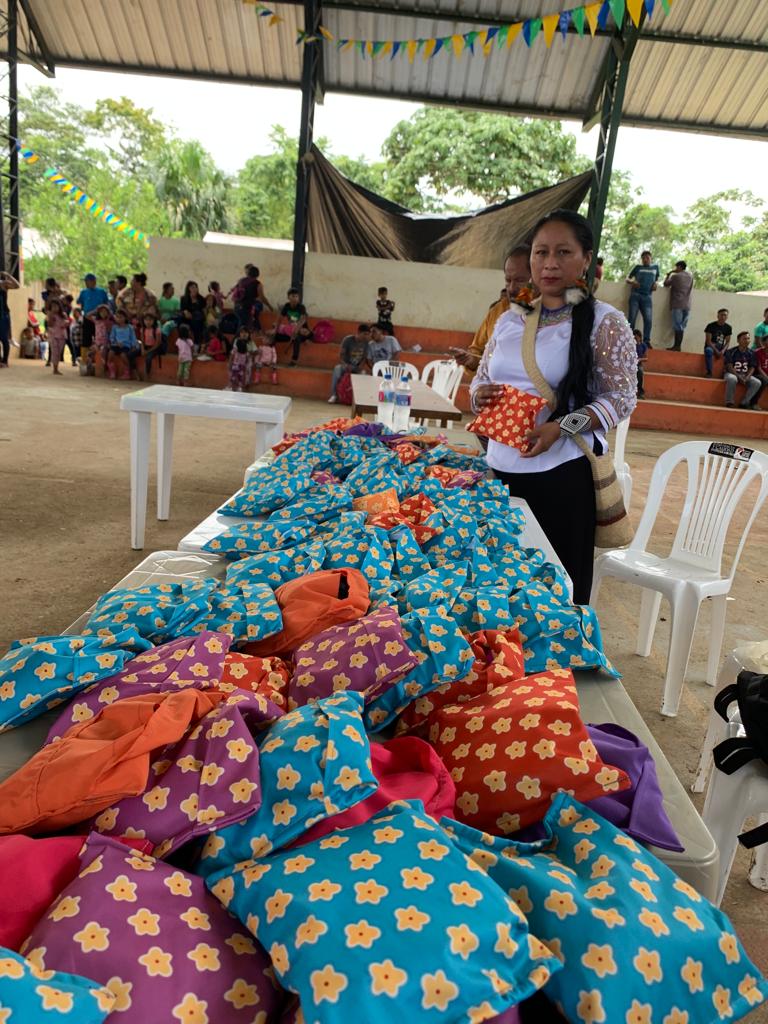 by plane or three days by canoe into the rainforest. Upon arriving, the Curaray locals were initially hesitant to interact with Andrea and DfGE. Despite their initial shyness, most of the community was present to welcome DfGE and participate in the distribution and education session. DfGE was able to distribute 92 Kits to women in the community, and the women and girls were excited to participate in the education and Kit distribution and walk away with a greater understanding of MH. Curaray was welcoming to DfGE, no small feat for a community that is historically inclined toward isolation.
by plane or three days by canoe into the rainforest. Upon arriving, the Curaray locals were initially hesitant to interact with Andrea and DfGE. Despite their initial shyness, most of the community was present to welcome DfGE and participate in the distribution and education session. DfGE was able to distribute 92 Kits to women in the community, and the women and girls were excited to participate in the education and Kit distribution and walk away with a greater understanding of MH. Curaray was welcoming to DfGE, no small feat for a community that is historically inclined toward isolation.
Canelos and Conambo
In addition to Curaray, DfGE also coordinated Kit distribution and MH education sessions for the isolated indigenous communities of Canelos and Conambo. Andrea and the DfGE team traveled southeast from Puyo, the capital city of Pastaza, into the rural jungle to reach Canelos. There, DfGE interacted with many members of the indigenous community and distributed 120 Kits to women and girls. The day of DfGE’s visit was also the day that a bridge into Canelos was opened, the first of its kind in the territory’s 163-year existence. Coinciding with the bridge opening, the distribution and MH education resulted in a large celebration with the entire community.
Finally, Andrea and DfGE traveled to Conambo, a remote community along the Conambo River in the rainforest of Pastaza. When DfGE arrived, their visit was met with excitement and engagement from the Conambo community. To welcome DfGE, more than 500 people gathered and participated in the Kit distribution and education session, an incredible result for the final distribution in Pastaza.
Success in Numbers
Through the hard work of Andrea and the DfGE, collaboration with the Vice-Prefect, and the willingness of indigenous leaders to recognize
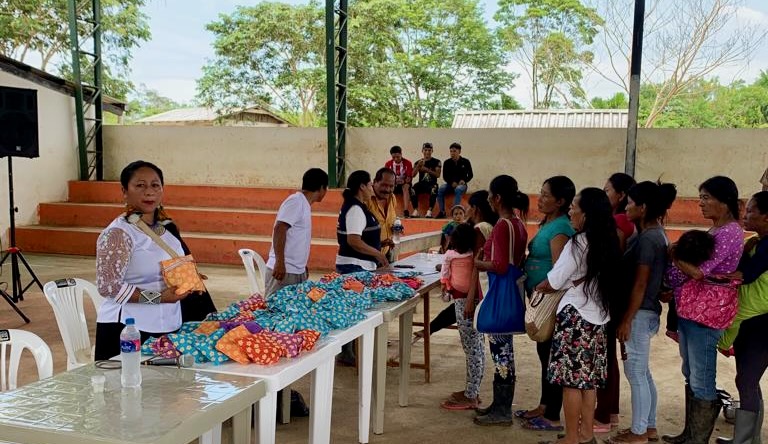
MH’s importance, the Kit distribution and MH education project across Pastaza was an incredible success. Through funding and facilitation of the Ecuadorian government and partnership with indigenous leadership, DfGE successfully distributed 350 DfG Kits and provided MH education to women and girls throughout Ecuadorian indigenous communities.
Since the distributions, more people are aware of the work DfGE is doing and are interested in joining the Enterprise. Currently, Andrea is working on an upcoming Kit distribution project for women in remote mountainous regions. She is focused on continuing to provide opportunities and resources to indigenous women, and she looks forward to working with more indigenous ethnicities and nationalities across Ecuador.
“We are very happy and grateful as the DfG Ecuador team to have had the opportunity to visit these communities,” said Andrea. “They are ancestral territories full of wisdom that deserve support to improve their quality of life.”







